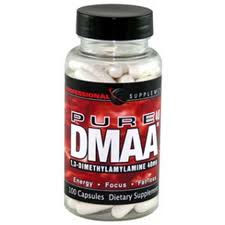February 29, 2012 — A woman from Southern California has filed a lawsuit over the dietary supplement C4 Extreme, which contains the popular stimulant ingredient DMAA. She claims that DMAA is “illegal and dangerous,” and she is now suing GNC and the company responsible for C4 Extreme for “making false and unsubstantiated representations concerning the efficacy, safety, and legality of C4 Extreme.” DMAA is a popular stimulant found in pre-workout energy boosting supplements, including OxyEilte Pro, Jack3d, and more. It is also found in party pills.
The DMAA lawsuit was filed by Lynette Bates, who purchased C4 Extreme. In the lawsuit, she claims that “experts in the industry have become concerned that this potent stimulant drug will lead to serious health issues and even death.” Indeed, the World Anti-Doping Agency has banned DMAA. Following reports of several deaths and injuries linked to the ingredient, New Zealand and Canada made it a controlled substance.
The controversy surrounding DMAA has grown significantly since two U.S. soldiers died during routine physical training. Both men suffered deadly heart attacks, and their blood tested positive for DMAA. The military has since banned sales of products containing DMAA on military bases.
The U.S. Food and Drug Administration (FDA) has recently moved to restrict DMAA in dietary supplements, and they have warned about the risk of severe DMAA side effects. Under U.S. law, dietary supplements that contain vitamins, minerals, and natural herbs are exempt from the federal oversight regulations for foods and drugs. However, some experts are now criticizing the FDA for lax regulation, and calling for stronger regulations in the future.
Though DMAA is listed on ingredient labels as “1,3-dimethylamylamine,” geranium oil, extract, or stem, the link between DMAA and the geranium plant is a source of controversy. It is based on one Chinese report published in 1996 in a technical journal that was not peer reviewed. The author ran botanical samples through a spectrometer, which automatically assigned identities to the compounds in the samples, one of which was DMAA. However, since then, no independent scientist has been able to reproduce this result, and most experts now agree that DMAA is actually a synthetic substance. It is manufactured in vast quantities in China.
DMAA was actually first mass-produced as a synthetic drug in the 1940s by Eli Lily, a pharmaceutical drug company. They sold DMAA under the brand-name Forthane in a nasal decongestant spray, but the drug was never very successful, and was soon discontinued. About six years ago, a chemist named Patrick Arnold began selling DMAA in dietary supplements. Arnold had just completed prison time for his involvement in the BALCO and Barry Bonds baseball doping scandal. Arnold created “designer” stimulants that evaded drug tests. Now he runs E-Pharm Nutrition, where he sells DMAA to the average consumer in dietary supplements.
Do I have a DMAA Lawsuit?
Collen A. Clark is a true advocate for his clients and is passionate about helping Texans that have been injured or wronged.
Collen’s amazing success in the courtroom and well known dedication to his clients has earned him the recognition of his peers as one of The Top Trial Lawyers in Texas.”
The Clark Firm has assembled a team of trial lawyers with more than 100 years experience, participation in over 600 jury trials and $60 million in verdicts and/or settlements. Please use the form below to contact us for a free DMAA lawsuit review.



 To contact us for a free review of your potential case, please fill out the form below or call us toll free 24 hrs/day by dialing:
To contact us for a free review of your potential case, please fill out the form below or call us toll free 24 hrs/day by dialing: